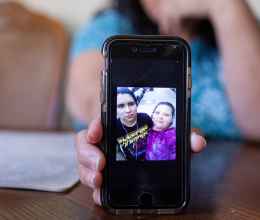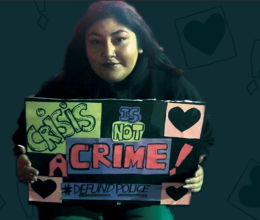
LOS ANGELES - On Wednesday, May 30th, a hearing will be held to determine whether Robert Rosenkrantz is illegally being denied parole by Governor Davis. Rosenkrantz, convicted of second-degree murder in 1985, has won the support of several members of the legislature, the judge who sentenced him, a member of the victim's family, and religious groups. The hearing will be held at 10:00 am in the Courtroom of Judge Paul Gutman (Department A), L.A. Superior Court - Van Nuys East Division located at 6230 Sylmar Ave. in Van Nuys, California.
On April 18, three religious denominations, represented by the ACLU affiliates of Northern and Southern California, and the law offices of Latham & Watkins filed a friend-of-the-court brief in support of Rosenkrantz. The religious groups, along with Albert M. Leddy, former Chairman of the California Board of Prison Terms, say that Rosenkrantz is a victim of Governor Davis' no parole policy that violates state and federal law. The religious groups include the California Council of Churches, the Board of Rabbis of Northern California, and the California Province of the Society of Jesus.
"We urge Governor Davis to reconsider his policy of refusing to release inmates convicted of murder who have been recommended for parole and are not considered a danger to society," said Scott Anderson of the California Council of Churches. "The Governor's no parole policy takes away any incentive for rehabilitation and reform and only increases the prisoner's despair and hopelessness. The policy robs society of those inmates who are rehabilitated, remorseful and repentant and who want to return as productive members to their communities. Mr. Rosenkrantz is such a man."
Since his imprisonment, the 33-year-old Rosenkrantz has become a computer expert, and has received several job offers. He completed therapy and has had a spotless record since he's been at the state's medium-security prison in San Luis Obispo.
"Governor Davis' blanket policy of no parole for all those who have committed murder is clearly unconstitutional and unlawful," said Will Barnett Fitton, of the law firm Latham & Watkins. "The Governor's policy does not consider all of the individual's characteristics and his likelihood of reform and only looks at the facts of the crime. In the Rosenkrantz case, the Los Angeles Superior Court and the Court of Appeal ruled that the offense was not sufficient to deny him parole. Rosenkrantz is being held captive by the Governor's no parole policy."
On April 9, 1999 the Los Angeles Times reported about the possibility of parole in murder cases, and Governor Davis said, "If you take someone else's life, forget it."
That same year, the Board of Prison Terms held nearly 2,000 parole hearings for those serving life terms. The Board determined that only 16 were suitable for parole. In every case, Governor Davis reversed or recommended against parole. In 2000, the Board conducted a similar number of hearings, and deemed only 19 lifers suitable for parole. Governor Davis has reversed or recommended against parole in every instance last year except one.
"We are anxious to preserve the integrity of the state parole system," said Rabbi David Teitelbaum, of the Board of Rabbis of Northern California. "The state parole system is based on the principle of human reconciliation and renewal. The Governor's no parole policy violates this very principle."
Albert Leddy, who served for nine years as a member, Commissioner and then Chairman of the California Board of Prison Terms from 1983-1992, said, "The Governor's policy of denying parole to all prisoners who have committed murder eliminates hope and motive for improvement and creates increased tension within the state's prison walls. If an inmate has no hope of being released, then why should he respect the rules and regulations that govern the prison? The California parole system values redemption and rehabilitation, and Rosenkrantz is clearly a model prisoner who deserves to be released."
"The Governor's lock-down on parole is a matter of politics, not sound policy," said Mark Rosenbaum, Legal Director of the ACLU of Southern California. "The Governor's 'no parole' policy amounts to an administrative decree that all life sentences be converted to 'life without possibility of parole.' This decree is unjust and runs counter to our laws and our society's belief in the rehabilitative purpose of imprisonment."





